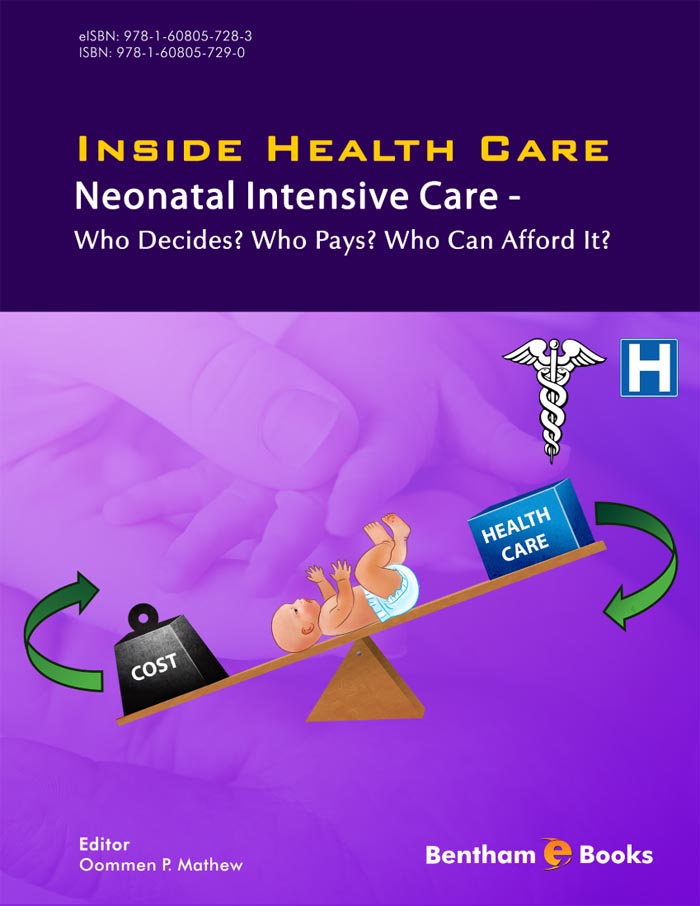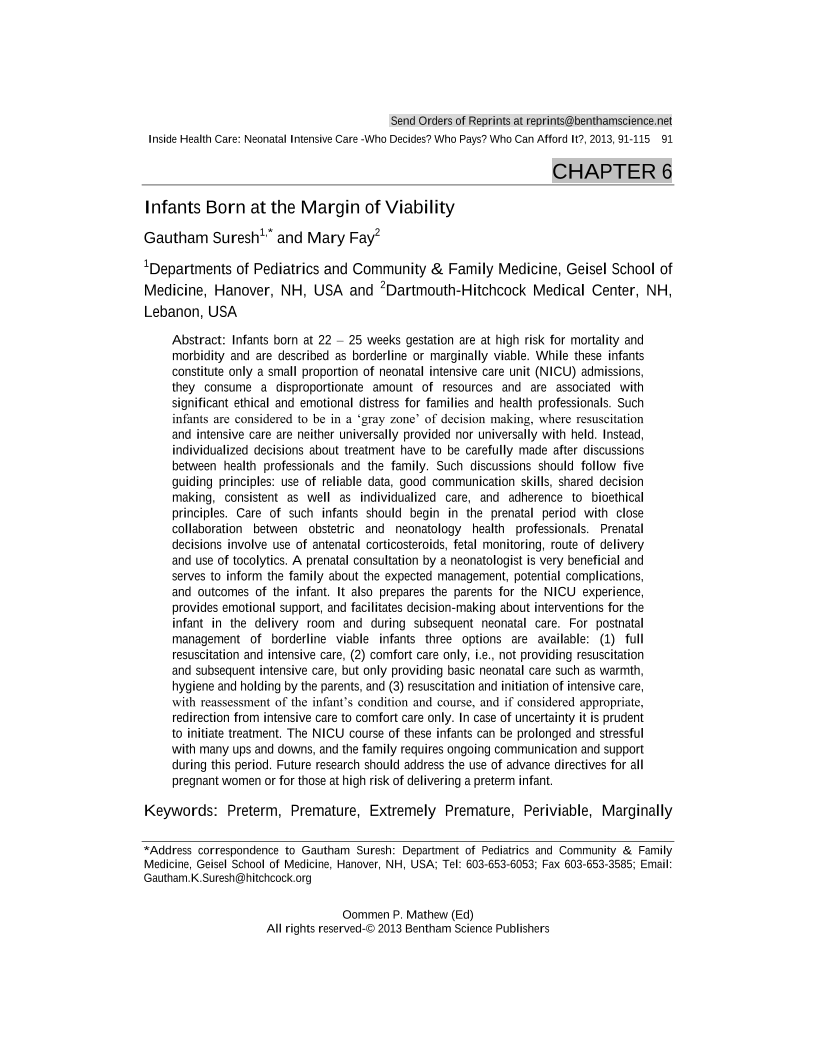Infants Born at the Margin of Viability

- Authors: Gautham Suresh1, Mary Fay2
-
View Affiliations Hide Affiliations1 Departments of Pediatrics and Community & Family Medicine, Geisel School of Medicine, Hanover, NH, USA 2 Dartmouth-Hitchcock Medical Center, NH, Lebanon, USA
- Source: Inside Health Care: Neonatal Intensive Care -Who Decides? Who Pays? Who Can Afford It? , pp 91-115
- Publication Date: July 2013
- Language: English
Infants Born at the Margin of Viability, Page 1 of 1
< Previous page | Next page > /docserver/preview/fulltext/9781608057283/chapter-6-1.gif
Infants born at 22 25 weeks gestation are at high risk for mortality and morbidity and are described as borderline or marginally viable. While these infants constitute only a small proportion of neonatal intensive care unit (NICU) admissions, they consume a disproportionate amount of resources and are associated with significant ethical and emotional distress for families and health professionals. Such infants are considered to be in a 'gray zone' of decision making, where resuscitation and intensive care are neither universally provided nor universally with held. Instead, individualized decisions about treatment have to be carefully made after discussions between health professionals and the family. Such discussions should follow five guiding principles: use of reliable data, good communication skills, shared decision making, consistent as well as individualized care, and adherence to bioethical principles. Care of such infants should begin in the prenatal period with close collaboration between obstetric and neonatology health professionals. Prenatal decisions involve use of antenatal corticosteroids, fetal monitoring, route of delivery and use of tocolytics. A prenatal consultation by a neonatologist is very beneficial and serves to inform the family about the expected management, potential complications, and outcomes of the infant. It also prepares the parents for the NICU experience, provides emotional support, and facilitates decision-making about interventions for the infant in the delivery room and during subsequent neonatal care. For postnatal management of borderline viable infants three options are available: (1) full resuscitation and intensive care, (2) comfort care only, i.e., not providing resuscitation and subsequent intensive care, but only providing basic neonatal care such as warmth, hygiene and holding by the parents, and (3) resuscitation and initiation of intensive care, with reassessment of the infant's condition and course, and if considered appropriate, redirection from intensive care to comfort care only. In case of uncertainty it is prudent to initiate treatment. The NICU course of these infants can be prolonged and stressful with many ups and downs, and the family requires ongoing communication and support during this period. Future research should address the use of advance directives for all pregnant women or for those at high risk of delivering a preterm infant.
-
From This Site
/content/books/9781608057283.chapter-6dcterms_subject,pub_keyword-contentType:Journal -contentType:Figure -contentType:Table -contentType:SupplementaryData105

